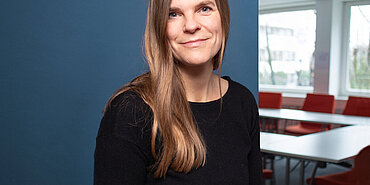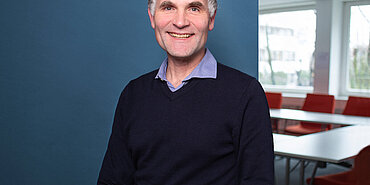For two weeks – from 13 to 26 November 2016 – two nine-strong delegations of Japanese experts were in Germany to learn more about inclusive education and social work in social environments – "Japan in", to use the term by Dorothea Wünsch from IJAB. Wünsch had co-organised the study programme together with the Japanese-German Center Berlin on behalf of the Federal Ministry for Family Affairs, Senior Citizens, Women and Youth. "Japan out" – study programmes for German experts in Japan – took place back in May, when experts travelled to Japan to learn about the same subjects.
Although the two Japanese delegations travelled separately, they met again in Cologne to attend a joint seminar with the German experts who had been in Japan in the spring. They discussed their respective impressions of the trip and drew up recommendations for inclusion and work in social environments for both countries. A good reason to listen carefully.
Observations and recommendations
During their trip, group A1 (inclusive education) visited a wide variety of facilities ranging from child day-care centres and formal and non-formal places of learning to workshops and vocational training centres. The Japanese delegation was particularly interested to learn that the term "inclusion" is used differently in the two countries. In Japan, it is applied in the context of working with people with disabilities; in Germany, it is used more broadly, for instance in contexts involving young immigrants. The Japanese experts also felt that the German school system is less flexible than the Japanese system, which offers a more diverse range of inclusive learning settings beyond mainstream schools, such as home schooling. They appreciated Germany's system of career orientation, which is offered at an early stage and on an ongoing basis both inside and outside of schools, and the ensuing close cooperation between schools, the Federal Employment Agency and support organisations. Finally, they were intrigued to hear that there is government assistance available for employers who give jobs to applicants with disabilities.
The strong role Germany's Länder, or federal states, play in the field of education and the resulting diversity of regional activities and services came as a surprise to the Japanese experts – and they are not the only ones. They recommended that the Länder cooperate more closely in this field, and also suggested offering more inclusive activities in non-formal settings, such as youth clubs. That said, one thing seems to be much the same in Japan and Germany: the low pay offered to preschool teachers and the resulting lack of public appreciation. When the Japanese experts suggested that matters be improved for this group of professionals, their German counterparts nodded enthusiastically.
Group A2 (social work for children and adolescents in social environments) spent much of their time in Germany exploring the relationship between child and youth services and schools. The participants felt that the two areas were not working together on an equal footing. "Schoolteachers think that experts working in non-formal youth work are too biased in favour of young people," ventured one Japanese expert, which earned her the applause of her German colleagues, who agreed with her. The Japanese experts welcomed the important role played by school social workers. This, they stated, should be emulated in Japan, which does not have a social worker at each school; neither is there a formal qualification system for school social workers.
The grass is always greener…
On day two of the seminar, the Japanese and German participants engaged in a dialogue on the specific subjects they had worked on, so two separate workshops were organised. Dorothea Wünsch from IJAB hosted the inclusive education workshop, which explored whether a common vision for inclusion is possible. Wünsch distributed pens and paper so participants could sketch out their personal visions and roles. "I teach Japanese," said Machiko Tokuchi, a special needs coordinator at a school in Miyakonojo in Miyazaki Prefecture, and showed her drawing. "If I could draw better, I would have become an art teacher." Machiko had drawn a group of people of varying size and colour, women and men, one in a wheelchair, the other missing an arm. The figures were balanced on a plank held up by another person. "That's me holding up the plank," explained Machiko. "I'd like society to be as diverse as this, and I want to help us all to live together."
Her attitude was shared by everyone in the room, whether German or Japanese. So what did participants experience during their respective trips? The Germans were full of praise for the extensive accessibility in Japanese cities. "Well, you did spend most of your time in Tokyo," one Japanese participant responded sceptically. The Japanese delegation felt that inclusion as a societal task is already widely accepted as such by the Germans. One German colleague shook her head. "Of course we took you to the institutions that we think have made most progress," she said. "What you saw is not necessarily a reflection of society's acceptance of inclusion." While the Germans admired Japan's cohesive society, the Japanese lamented its gradual decline. Generally, it seemed as if each group thought that in the other country, they had seen the vision they would like to see at home, too. Then again, the grass does always appear greener on the other side. In that sense it was good to reflect on one's impressions together and recognise that this shared journey is not over yet. The milestones the participants had seen do not indicate that things are perfect in the respective other country, yet they have triggered a dialogue that helps things to move forward and can be an inspiration for the experts' work at home.




